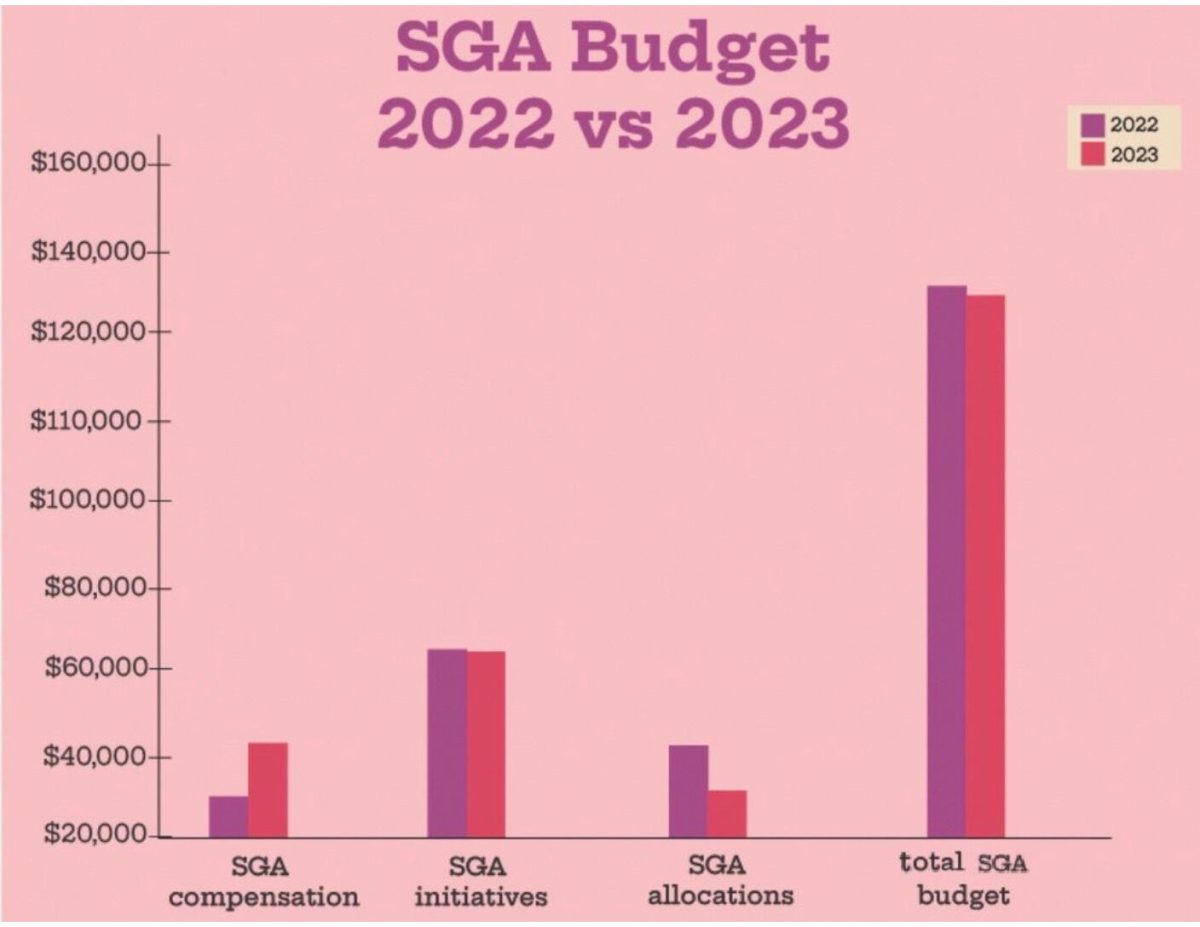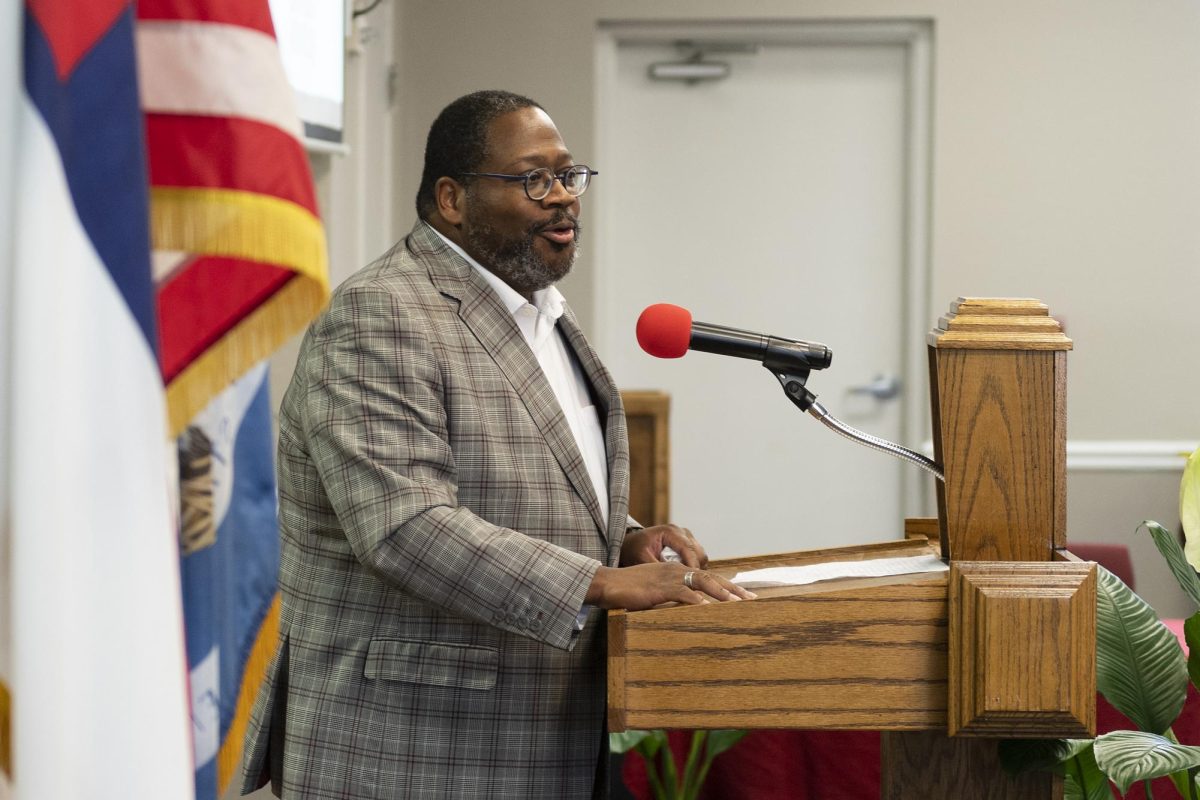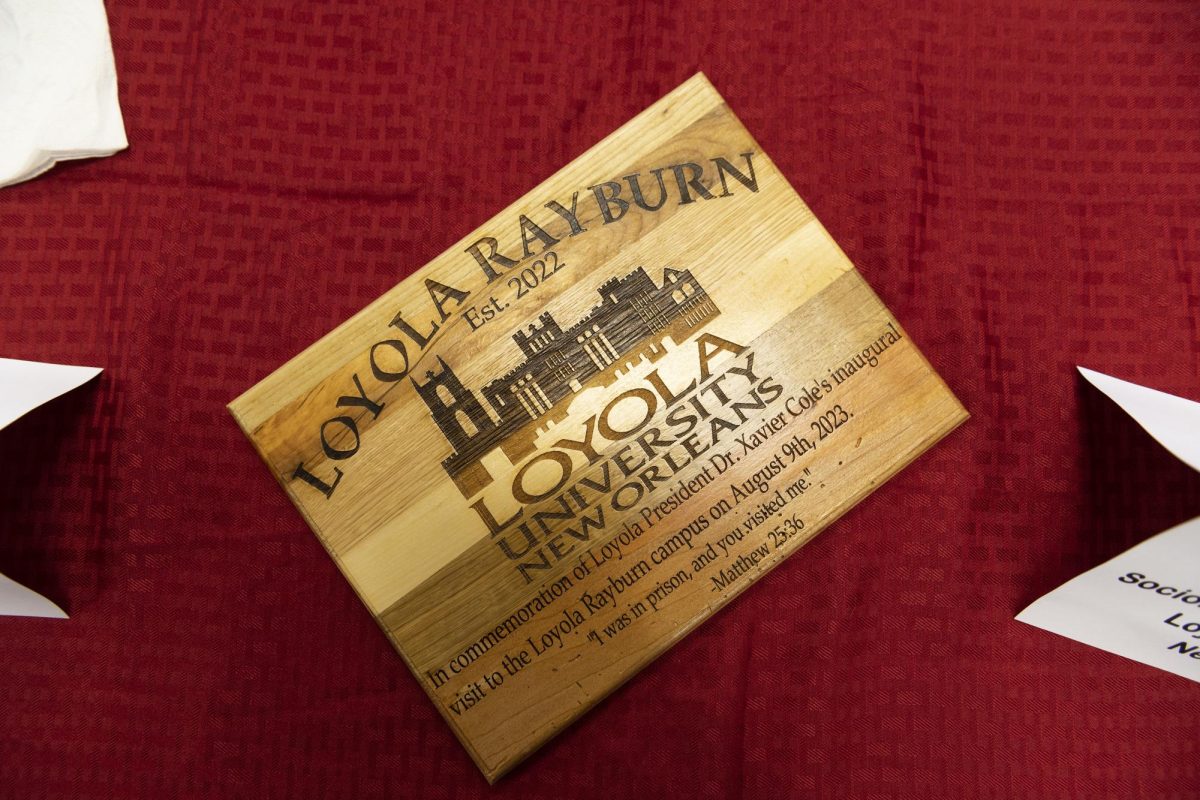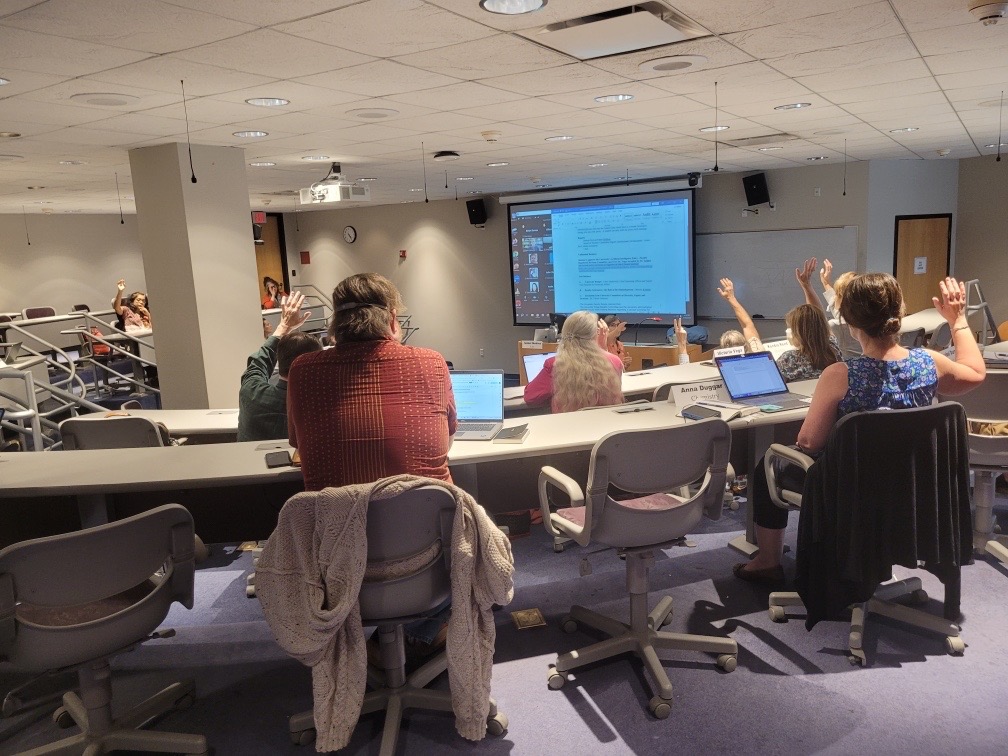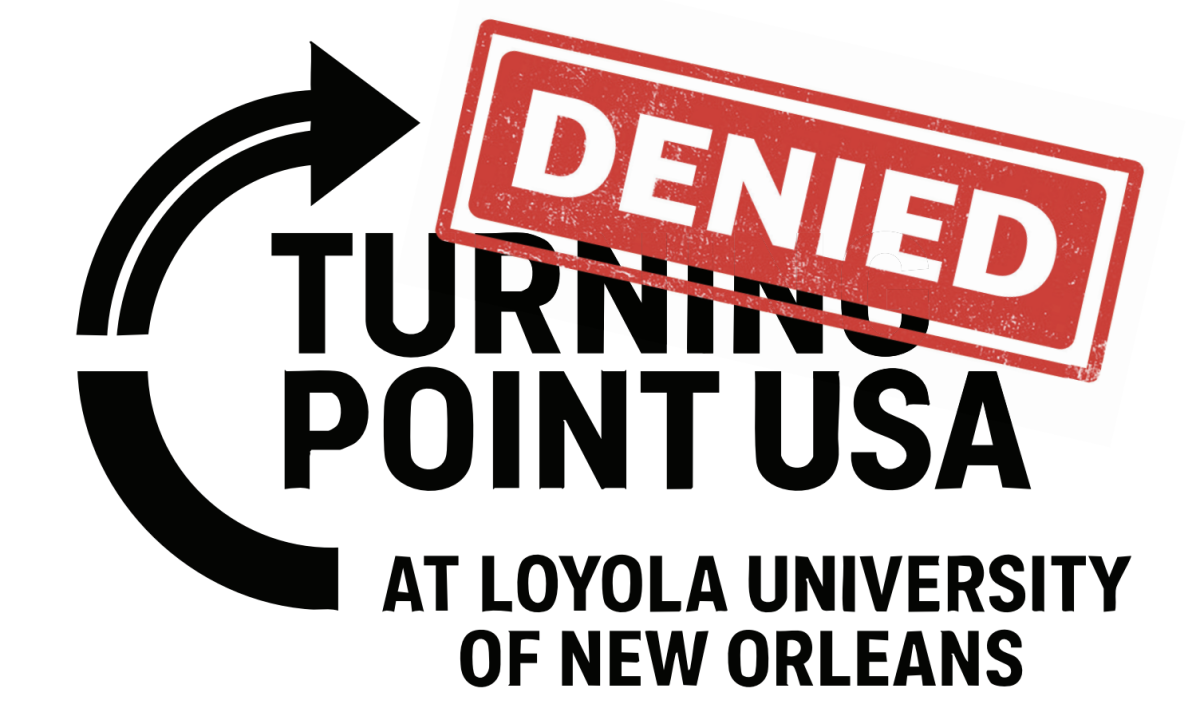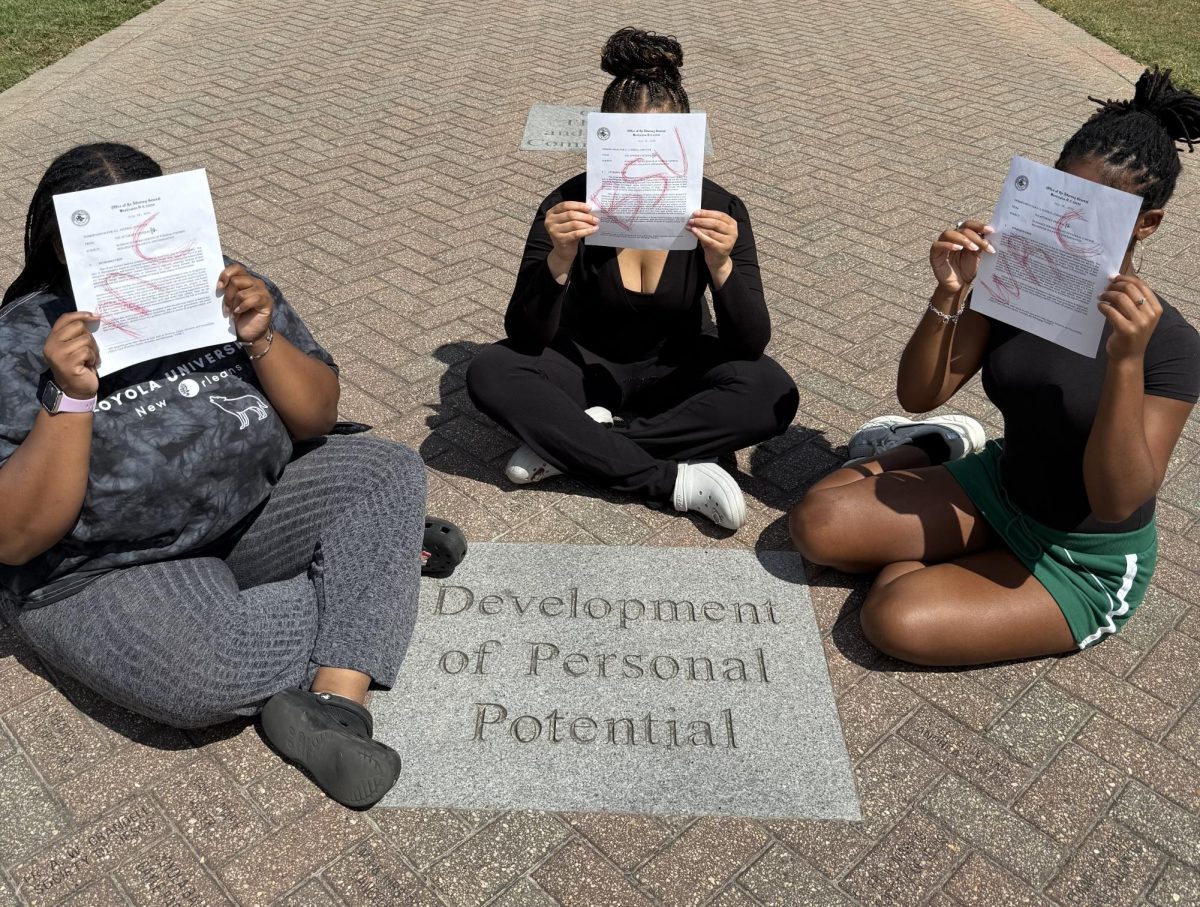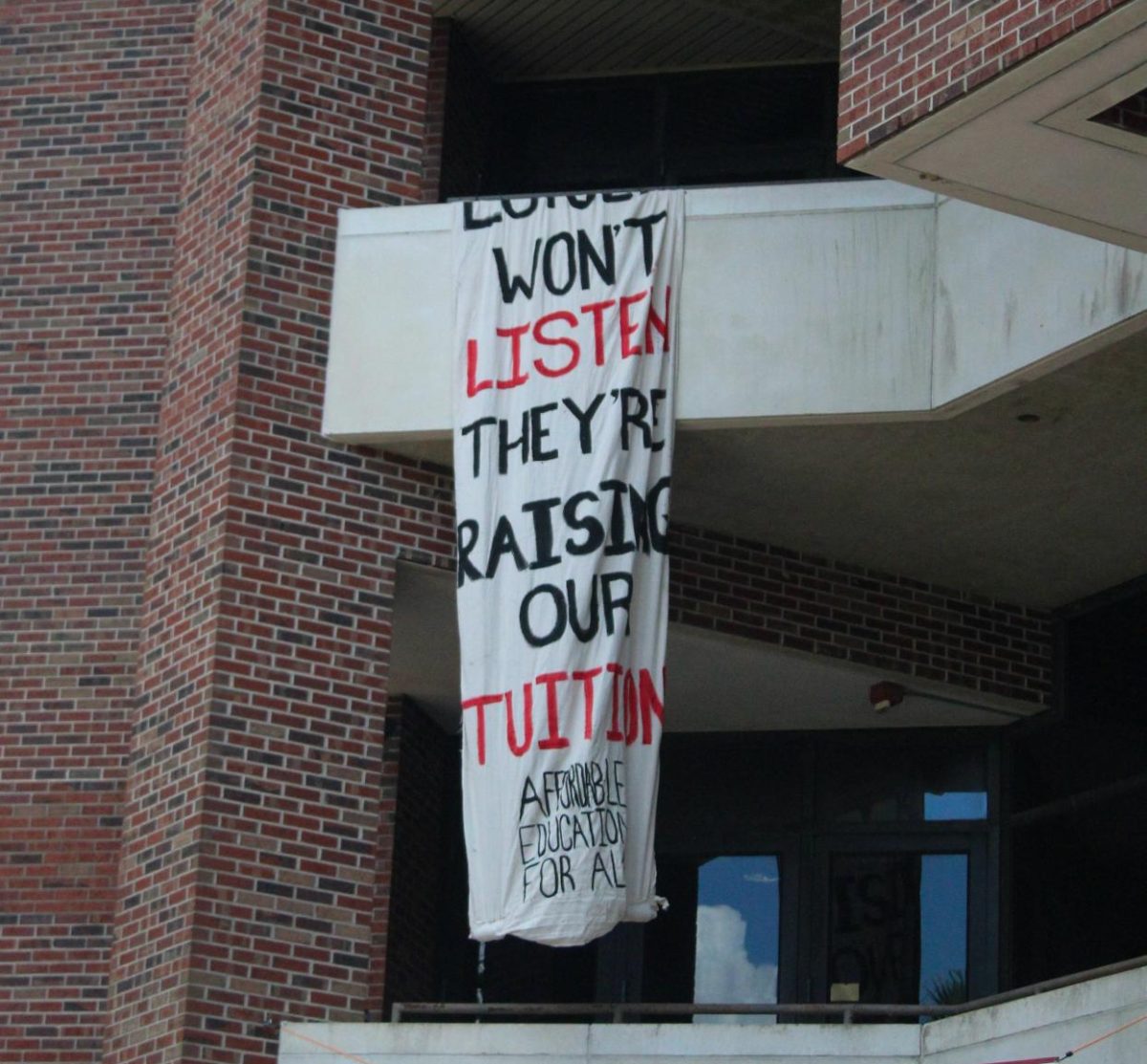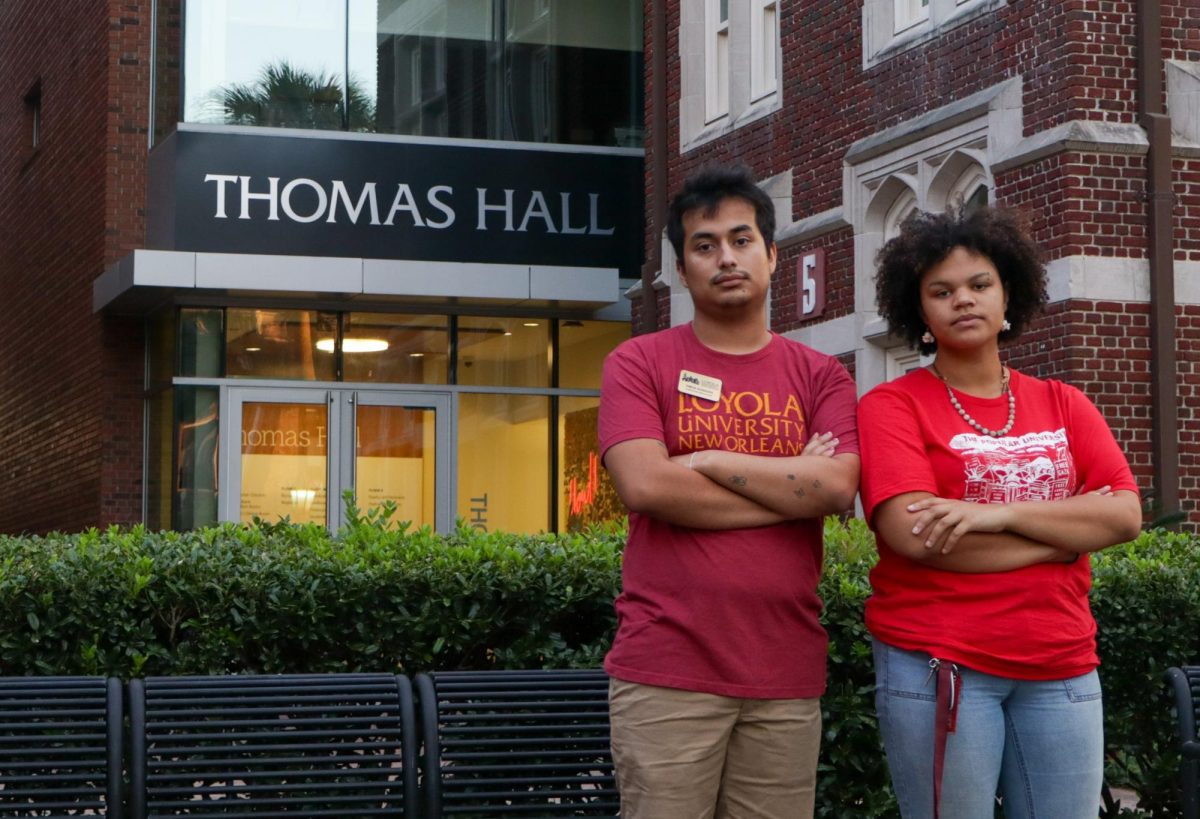Loyola’s Student Government Association released their budget for the 2023-24 academic year, cutting funding in some areas and increasing in others.
Every year, SGA receives a certain amount of funding from Loyola in order to perform their duty of serving the Loyola community. This year, their total budget is $129,800, a decrease of almost $6000.
On Wednesday, Sept. 13 in a senate meeting, the 2023 budget was proposed and passed through a vote by members.
SGA members compensation
Each year, a portion of the SGA funding goes toward payment of their Cabinet members, along with the Senator at Large.
This year, SGA President, Makayla Hawkins, received $6,270 to pay for housing and meal plan and $1,750 stipend. This stipend was $230 more than last year.
The total SGA president compensation will be $8,000 this academic year.
Vice President Sydney Randall received $5,917 to pay for her housing and meal plan with a stipend of $1,633, which was an increase of $133 from last year.
The total vice president compensation will be $7,550 this year.
Each cabinet position, besides homecoming chair, will receive a $2,400 stipend for the year. This increased $200-400 from last year, depending on the position.
According to Diamond Dixon, director of finance, cabinet members’ stipend increased $200 from last year in order to meet the work study hourly wages of $10 per hour.
“We work approximately 24 weeks for 10 hours a week,” Dixon wrote in the budget.
The homecoming chair received $200 more this year compared to last, evening out to $1,000 for the year.
The homecoming chair makes less than other cabinet members due to the position holder only working from October to December of the fall semester, according to Dixon.
The total cabinet member compensation will be $15,400 this year.
The Senator at Large will earn $2,000 in compensation this year. This is the first year this position has been paid, according to the budget.
The total compensation for SGA members this year equals out to $42,950. Last year, it totaled to $28,987.
SGA Initiatives
Executive initiatives are initiatives the president and vice president carry out.
“We want these initiatives to be beneficial for the students so we provide information as well as tangible items like handouts and food,” Dixon wrote.
This year, this funding stayed the same as the last two years with $2,000.
The University Programming Board received a $1,000 increase for a total of $36,000.
UPB is in charge of funding university programming, such as Wolfpack Wednesday or Sneaux in December.
Dixon wrote that this was increased due to inflation.
Homecoming initiatives were increased from $8,000 last year to $9,000.
Dixon wrote last year, homecoming costs approximately $18,000. This year, the budget for initiatives increased to allow for more homecoming events and for the homecoming committee to plan ahead and purchase more, according to Dixon.
Equity & Inclusion Initiatives have continuously decreased funding for the past four years. In the 2020-21 school year, these initiatives received $5,000 in funding. The next year, funding decreased to $3,000, then to $2,500. This year, these initiatives received $1,500.
According to Dixon, this decrease was due to the Equity and Inclusion officer, Stephanie Oblena, requesting a lower budget.
“The Director of Equity and Inclusion has determined that she can fulfill her initiatives with a smaller budget. Some of her tentative initiatives are a salsa dance class and a drag show,” Dixon wrote.
Previously, Court of Review initiatives were responsible for funding Iggy’s Cupboard, however, the cupboard received a grant that has allowed SGA to spend funding for Iggy’s and Court of Review in other areas.
$1,000 of SGA funding will go to Iggy’s cupboard. Court of Review initiatives will receive $700, which will go towards other needs.
Dixon wrote that they are planning to use this money to table for Iggy’s cupboard, a voter registration drive, and revisions of student organization bylaws.
First Year Council, a branch of SGA which allows freshman or first-year students to become involved in the organization, received a $100 increase from previous years, totaling to $1,600 for this year.
This was increased to help retention for SGA, according to Dixon.
Last year, Senate initiatives did not exceed $4,000 for the year when $4,500 was allocated. This led to a decrease in this funding to $3,700.
Finance initiatives increased from $300 to $500 this semester to compensate for more social media initiatives.
Dixon wrote that the in-person events receive less attention, leading SGA to focus more on social media. Through this, they plan to do quizzes with themes where winners will have a chance to receive Wolfbucks.
Communication efforts received $3,000, the same amount it was given last year. Dixon wrote that this was for a new camera and to help fund the merchandise drop later this year.
“The goal this year is to increase the visibility of SGA among the students. Better photography will benefit both the visibility to the students and increase the portfolio of the students working on the communication committee,” Dixon wrote.
The Grace of Ignatius Award received funding again after not having it last year, however, the award was cut in half from what it was in 2021, the last time it was funded. Now, the award is $2,500, split between two students.
The Pursuit of Excellence Textbook Scholarship, for the first time, has its own funding of $1,500.
SGA initiatives totals out to be $63,000, an $800 decrease from last year.
SGA Allocations
Allocations request funding decreased by $4,000 this year, leaving $28,000 available for request.
Dixon wrote that this decrease was to put “more line items to use” and specifically pointed out the Social Justice Grant.
“This will help increase more initiatives towards Social Justice, which goes in accordance with our Jesuit value of [being] with and for others,” Dixon wrote.
However, the Social Justice Grant was cut in half from last year, making only $2,500 available.
This was due to only $2,887.86 being used in previous years when $5,000 was available, according to Dixon.
The Richard Frank Research Grant, a grant which helps fund students research, also no longer has its own budget like previous years. Instead, SGA has decided to add this grant to the allocations request funding.
This means students can still apply for this grant, but funding will be pulled from allocations. This was due to only two students applying last year.
Club sports also received a $1,650 cut this year, making only $3,350 available for the year.
Dixon wrote that this was due to their funding through the Campus Recreation budget.
SGA’s total allocations totaled to $33,850, a decrease from last year’s budget of $43,000.


